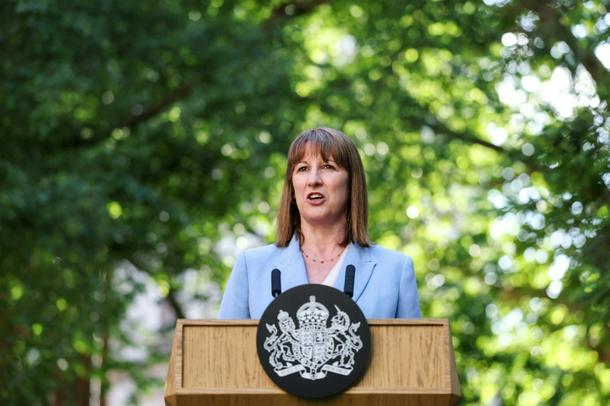
Finance minister Rachel Reeves said the government would invest in security, health and the economy 'so working people all over our country are better off'
London (AFP) - Britain’s Labour government will unveil detailed day-to-day spending and investment plans for the coming years on Wednesday, with big funding increases to defence and healthcare expected, along with cuts elsewhere.
Finance minister Rachel Reeves is set to address parliament around midday, outlining her Spending Review in the hopes of boosting the country’s growth, which risks pressure from US President Donald Trump’s tariffs onslaught.
Ahead of her speech, Reeves said the government would invest in security, health and the economy “so working people all over our country are better off”.
Reeves promised to “invest in Britain’s renewal”, as she unveiled spending boosts to nuclear power.
Citing Russia’s invasion of Ukraine, Prime Minister Keir Starmer’s government has said it will increase its defence budget to 2.5 percent of economic output by 2027 – and up to 3.0 percent by 2034, helped by cutting international aid.
There are suggestions this could rise further still.
The struggling National Health Service is set for a funding boost – forcing other key ministries to tighten their belts.
“While we know where the vast amount of money will be allocated ahead of this speech, what we don’t know is where the savings will come from,” said Kathleen Brooks, research director at trading group XTB.
The Treasury has reportedly clashed with the interior ministry, particularly regarding the police budget, as well as with the energy department amid fears for the UK’s carbon reduction commitments.
Reeves has announced major cuts to public budgets in recent months amid tight fiscal conditions.
Since Labour won power last July, ending years of rule by the Conservatives, it has scaled back disability welfare payments, hoping to save more than £5 billion ($6.7 billion) by 2030.
- Balance the books -
Reeves, whose official title is chancellor of the exchequer, has amended her fiscal rules to allow the government more headroom for investment in the run-up to the review.
At the same time, she is looking to balance the books so that tax revenues match day-to-day spending, meaning the government borrows only to invest.
The minister has allowed the Treasury to borrow more, particularly for infrastructure projects across the vital housing and energy sectors.
This has handed her a windfall of £113 billion over five years.
Reeves “will need to balance the books by making cuts to unprotected department budgets”, said Joe Nellis, economic adviser at consultancy MHA.
He suggested that areas at risk included the interior ministry and local authorities.
While Britain’s economy grew by a better-than-expected 0.7 percent in the first quarter, analysts cautioned that solid expansion was unlikely to be sustained.
“If growth fails to emerge, then she (Reeves) will either have to cut further areas of public sector spending or raise taxes again in this year’s Autumn Budget,” said Nellis.
Reeves, in her inaugural budget, raised a business tax, which is starting to impact on unemployment and wages growth.
Ahead of the review, the government pledged billions of pounds for Britain’s nuclear industry – including the new Sizewell C power plant – plus £86 billion for science and technology by 2030 and more than £15 billion for public transport in England.
- U-turns -
Reeves was expected on Wednesday to confirm £39 billion for a programme to build affordable homes over the next 10 years, and “deliver the 1.5 million homes this country needs”.
She was due to announce investment of up to £750 million on a new national supercomputer in Edinburgh.
The move reverses a decision by Labour to scrap funding for the project, which had been promised £800 million under the former Conservative government.
Labour on Monday U-turned on a policy to scrap a winter heating benefit for millions of pensioners following widespread criticism, including from within its own party.